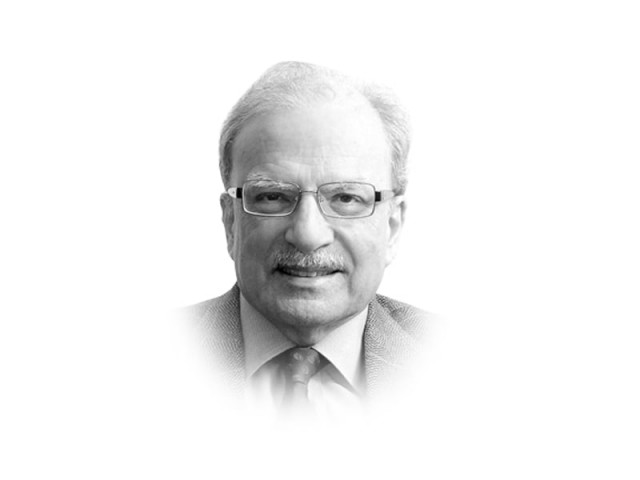Pakistan’s political leaders as heroes
I have a list of a scores of leaders who have shaped Pakistan. Of these only one was a woman

The writer is a former caretaker finance minister and served as vice-president at the World Bank
My second observation relates to the factors that contribute to political development. In the magisterial two-volume work on political development and political decay, Francis Fukuyama casts political development as a composite of three factors: state institutions, the rule of law, and democratic accountability. But how do societies get to that point? I will suggest that the quality of leadership plays a big role in guiding nations toward political development.
This brings me to the point of defining leadership: a difficult task. I have a list of a scores of leaders who have shaped Pakistan. Of these only one was a woman. Among them I can find only two heroes and one who has the potential of becoming one. The rest did not measure up to my definition of political heroes. I will define the meaning of political hero by using a foreign example. However, before getting to that point, a few words about Pakistan’s history would be appropriate.
Pakistan’s birth was difficult. Many expected the country would not survive. From 1947, the year of the country’s birth, to 2015, as the country seeks to sail through a perfect storm, it has faced many crises. Most other crises were ably managed by the leaders who showed the same kind of resolve displayed by the first set of leaders. But the latter group of leaders did not produce heroes. This leads one to ask the question whether the country has the leadership in place that can meet the challenges of 2015.
For an answer let me quote from a review of a recent biography of Vaclav Havel, modern Czechoslovakia’s first leader, by the highly respected American journalist, Michael Ignatieff. “Heroism is essential to politics,” he writes in The Atlantic. But “we are short of heroes everywhere these days, but particularly in politics … To find courage in the political realm, to remember what it can do to transform our hopes for politics itself, we have to go back to the canonical leaders of 1989 and 1990. The times demanded bravery, and leaders aplenty rose to the occasion. Gorbachev showed courage in not using force to hold his empire together. Mandela’s toughness and magnanimity guided South Africa from apartheid to black majority rule. In Poland, the shipyard worker Lech Walesa led his country to freedom. In Czechoslovakia, a play-wright named Vaclav Havel defied imprisonment and intimidation to become the president of a free country.” Ignatieff concludes his essay with the thought that “we tend to think of heroism as mysteriously individual, but Havel’s life teaches us that it is in fact a social virtue”.
In reflecting about Pakistan’s future — the future of the Pakistani state as a political entity as well as an economic enterprise — I am reminded of a statement by Havel, while he led his country’s fight against rule by the Soviet Union and the Communist Party. “Isn’t it the moment of most profound doubt that gives birth to new certainties? Perhaps, hopelessness is the very soil that nourishes human hope; perhaps one could never find sense in life without first experiencing its absurdity.” I believe the statement appropriately defines Pakistan’s current situation.
Published in The Express Tribune, April 13th, 2015.
Like Opinion & Editorial on Facebook, follow @ETOpEd on Twitter to receive all updates on all our daily pieces.















COMMENTS
Comments are moderated and generally will be posted if they are on-topic and not abusive.
For more information, please see our Comments FAQ